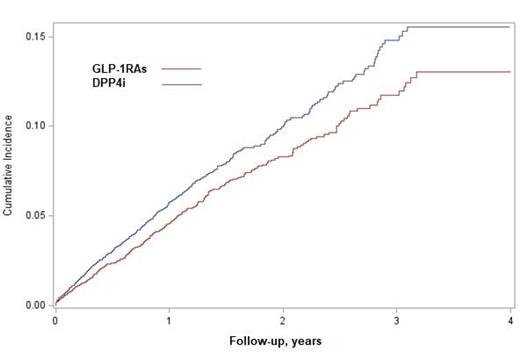People with type 2 diabetes who are treated with GLP-1 agonists have a decreased risk of developing dementia, according to a new study from Karolinska Institutet in Sweden published in the journal eClinicalMedicine.
Drugs known as GLP-1 agonists or GLP-1 analogs have become increasingly popular in treating type 2 diabetes and obesity as they help control blood sugar, promote weight loss and protect the heart.
People with type 2 diabetes have an increased risk of developing dementia and it’s been hypothesized that newer diabetes drugs such as GLP-1 agonists and DPP-4 inhibitors might have a protective effect.
In the new register-based study, researchers followed more than 88,000 older individuals with type 2 diabetes for up to ten years. Using a study design called target trial emulation, which imitates a randomized clinical trial, they analyzed the association between three diabetes drugs (GLP-1 agonists, DPP-4 inhibitors or sulfonylureas) and the risk of dementia.
They found that patients who used GLP-1 agonists had a 30 per cent lower risk of developing dementia compared to those who used sulfonylureas, and a 23 per cent lower risk compared to those who used DPP-4 inhibitors.
“This is important because it can help doctors make better decisions about which medicines to use for older patients with type 2 diabetes,” says lead author Bowen Tang, a PhD student in Sara Hägg’s research group at the Department of Medical Epidemiology and Biostatistics, Karolinska Institutet. “However, proper randomized trials are needed to establish with certainty that GLP-1 agonists reduce the risk of dementia.”
The study was funded by the Swedish Research Council, Karolinska Institutet, the National Institute on Aging, the National Institutes of Health, and Riksbankens Jubileumsfond.





